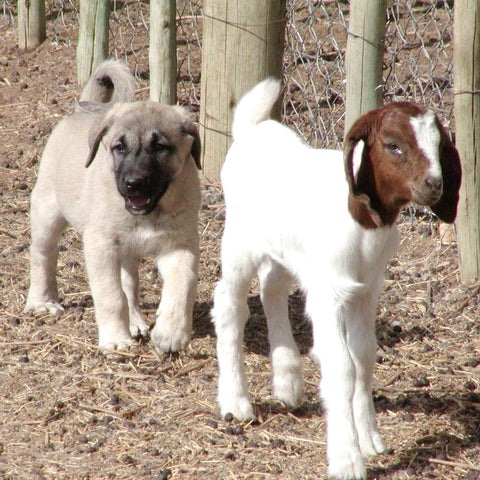
Cheetah Conservation Fund
See our GiftsOverview
To ensure the long-term survival of the cheetah and its ecosystem through a multi-disciplined and integrated conservation program of research and education. CCF is a proactive organisation that finds practical solutions to help people to help the cheetah and this is reflected in its Vision: "We see a world in which cheetahs live and flourish in co-existence with people and the environment".
Mission
To be an internationally recognised centre of excellence in research and education on cheetahs and their eco-systems, working with all stakeholders to achieve best practice in the conservation and management of the world's cheetahs.
History
The Cheetah Conservation Fund (CCF) was founded in 1990 by Dr. Laurie Marker in Namibia, the country with the largest and healthiest population of cheetahs left in the world. CCF not only endeavours to conserve the cheetah and its habitat but also to act as a conservation model for other species in conflict with humans.
CCF believes that the people, not the government, can save the cheetah. Hence, its vision is to have
an educated community that actively participates in the cheetah’s long-term survival: “Without the
land and the people, we will never have conservation. We must therefore alleviate poverty and
educate using a multi-disciplined and integrated approach. We need to do this through training and
creating entrepreneurship opportunities for Namibians and other nationals where cheetahs still exist.”
Program
CCF works to:
- create and manage long-term conservation strategies for the cheetah throughout their range
- develop and implement better livestock management practices, eliminating the need for ranchers to kill so many cheetah
- conduct conservation education programs for local villagers, ranchers and school children
- continue intensive scientific research in cheetah genetics, biology and species survival
Impact
CCF's stance is that understanding the cheetah's biology and ecology is essential to stabilise the population and manage its sustainability for the future. Its strategy to save the wild cheetah is a three-pronged process of research, conservation and education, beginning with long-term studies to understand and monitor the factors affecting the cheetah's survival. Results of these studies are used to develop conservation policies and programmes to sustain its populations. CCF actively works with local, national and international communities to raise awareness, communicate, educate and train.
CEO
Dr. Laurie Marker
During her 16 years (1974-1988) at Wildlife Safari (Oregon, USA), Dr. Laurie Marker helped develop the successful international captive program. She first came to Namibia in 1977 with a captive-born, hand-raised cheetah to determine if a cheetah must be taught to hunt or if the process was fully instinctual. This was the first-of-its-kind research to understand whether captive-born cheetahs could be re-introduced into the wild. She then learned about the conflict between livestock farmers and cheetahs, and after 10 years of visits to Africa set up the not-for profit Cheetah Conservation Fund in 1990 as a permanent conservation research Centre for the wild cheetah. In the early 1980's, along with collaborators at the National Zoo and National Cancer Institute (USA), she helped identify the cheetah's lack of genetic variation, thus causing the species greater problems for survival, and in 1988 became the Executive Director of the Center for New Opportunities in Animal Health Sciences (NOAHS) where she continues to serve as a Research Fellow. She is the Keeper of International Cheetah Studbook, a registry of captive cheetah worldwide that she developed in 1988. In 1996 she was made a vice-chair of the World Conservation Union's (IUCN) Species Survival Commission's (SSC) Cat Specialist Group. Honors include Time Magazine's Heroes for the Planet and the Burrow's Conservation Award (2000), Windhoek Rotary Club’s Paul Harris Fellowship (2001), Sanveld Conservancy (2002), Chevron-Texaco’s Conservationist of the Year (2003), Living Desert's Track's in the Sand (2005), San Diego Zoological Society's Lifetime Achievement Award and Society of Women Geographers' Gold Medal (2008).
Board
-Dr. Stephen O'Brien (Chairperson) - Chief of the Laboratory of Genomic Diversity and head of the Section of Genetics, National Cancer Institute
-Gary Lee (Secretary) - Senior Principal, CLR Design Inc.
-Robert Mahoney (Treasurer) - Hillcrest Capital Partners
-Dr. Laurie Marker - Executive Director
-Robert H. Ludlow, Jr. - Law Offices of Robert H. Ludlow, Jr.
-Moses Thompson - Founder, Maizemoor International, Inc.
-Dan Beringer - Entrepreneur
-Carol Hosford - Conservationist and philanthropist.
-Margery A. Nicolson - Biochemist, educator and environmentalist
-Beth Wallace - Vice President of Digital Marketing, Conservation International
Countries
Algeria, Botswana, Ethiopia, Iran, Islamic Republic of, Kenya, Namibia, South Africa
Contact
PO Box 2496
Alexandria, VA 22301-0496
Phone: 866-909-3399
http://www.cheetah.org
EIN: 31-1726923
Environment
Regular price $5000 $50.00
Since 1994, CCF has placed over 260 livestock guarding dogs. The puppies bond with their herds and protect the herds from predators. Most farmers with these dogs from CCF report dramatic reductions of livestock losses due to cheetahs and other predators. In turn, this helps the farmers implement improved livestock management techniques and encourages the farmers to co-exist with cheetahs instead of removing cheetahs from...

